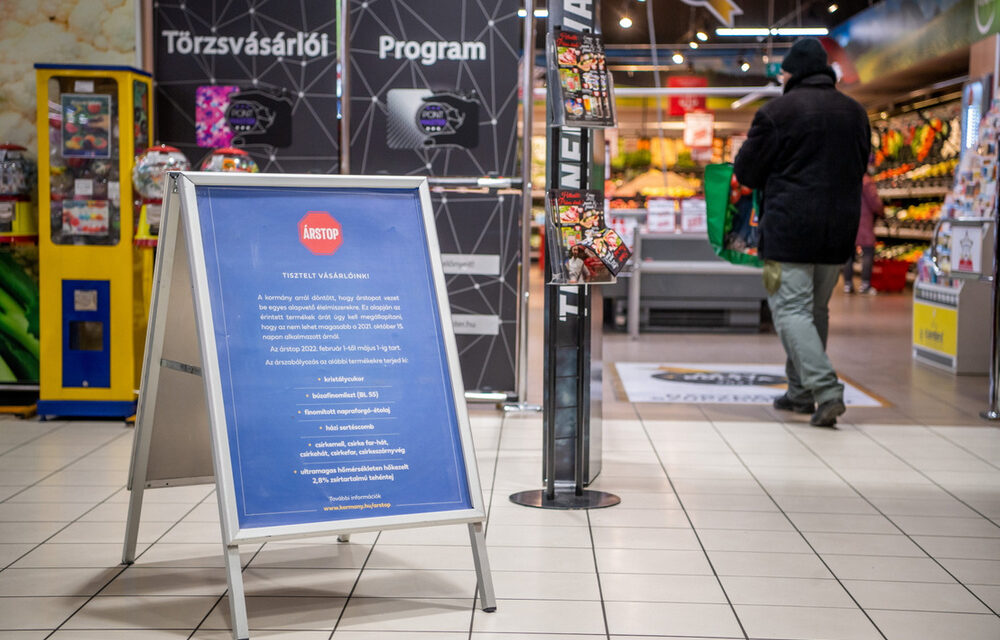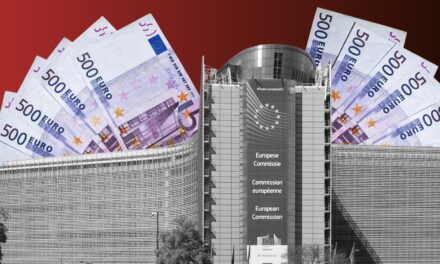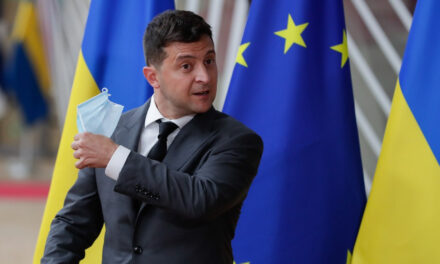According to the EU court, profit comes before the fact that even people in a more difficult situation can get access to basic food during a crisis. The Hungarians were humiliated in Luxembourg - said the president of the Economic Competition Office (GVH) in an interview with Magyar Nemzet about the so-called Spar verdict.
In an interview published in the newspaper on Tuesday, Balázs Csaba Rigó denied that the GVH investigation launched against Spar was official retaliation, and noted that the organization he leads launched a so-called follow-up investigation at Spar due to several of the company's previous commitments.
" It has nothing to do with the fact that our action roughly coincided with an EU court decision, which contained a decision unfavorable to the Hungarian state in connection with one of Spar's lawsuits," he said.
He recalled that, according to the judgment published on September 12 by the Luxembourg-based court of the EU, the Hungarian government violated EU law when it required in 2022 that domestic stores keep an adequate amount of products with a price cap in stock. Spar did not always do this, which is why it was fined in 2023, for which the store chain initiated a lawsuit in Hungary.
He added that the legal dispute came to the court of the union by sending it to the acting domestic court.
" First of all, I note that the GVH was not involved in the case in any way. However, I have a strong opinion about it. As I stated earlier, the introduction of price caps was a harsh intervention in competitive conditions, and such a measure can only be used in special circumstances and only on a temporary basis. The government decided in favor of price caps when there was galloping inflation, and it was necessary to guarantee that consumers could get at least basic food at an affordable price. Meat, sugar, milk, oil, flour and more. In my opinion, the government's decision at the time was correct, understandable from a sociopolitical point of view, and most importantly, it served the interests of the Hungarian people. After this, I can only say about the condemning EU verdict: they humiliated the Hungarian consumers, and not only them, but also the state consumer protection specialists. According to the EU court, profit comes before the fact that even people in the most difficult and vulnerable situations can get access to basic foodstuffs during a crisis," explained the president of the competition office in the interview.
He also announced that in 2020 Spart was caught by the competition office for numerous violations of the rules: the company abused its significant market power to the detriment of its suppliers.
he added.
He also announced that in 2020 Spart was caught by the competition office for numerous violations of the rules: the company abused its significant market power to the detriment of its suppliers.
In addition to establishing the violation, the GVH obliged Spart to fulfill its commitments, which included a package of measures worth a total of HUF 1.7 billion, for example, that the company establish a new, regional supplier system, increase the sales opportunities of Hungarian small producers, and create jobs.
They are now investigating whether Spar has completed the implementation of the measures included in its undertaking in full and on time, said Csaba Rigó.
He also said that
several large store chains are also being investigated after the Ministry of National Economy approached the GVH at the end of August. The ministry found that after the introduction of the mandatory promotion, the commercial chains carried out simultaneous and significant price increases for several basic products, such as sugar, flour and certain types of milk.
The question, according to the president, is whether the chains acted in concert when they increased their prices by 80 or even 100 percent.
" In order to clarify the situation, we have launched a complaint procedure, so in the first instance we are trying to obtain all important data from the retail companies, and we are going through them thoroughly. We will then decide, soon, whether further steps are necessary," he said.
In response to a question, he explained that last year two accelerated sectoral investigations were carried out, one on the durable food market and the other on the dairy products market, and then it was established that the inflation was partly due to the increased hunger for profit of some store chains, to which the population was at the mercy.
At that time, it was also observed - he continued - that consumers spread their losses on official-priced food to other goods, thus increasing food inflation.
" Today, it is no longer a question, but a fact, that profit-driven inflation is on our hands. In our current investigation, we are focusing on today's prices of products that were previously offered at a lower price," he said.
In response to a question, he noted that they started to analyze the domestic markets where it often happened that only one bidder started a public procurement, the government's goal is to reduce the number of such procedures, and the European Commission expects this as a condition for the transfer of EU funds.
According to the factual statements of the Public Procurement Authority, the number of single-bid public procurements has decreased in recent years, so there is progress in this area, he added.
Balázs Csaba Rigó also mentioned that an important question is what kind of access market players have to artificial intelligence-based technology. Are there any companies or sectors that find it more difficult to access this technology, or do they also look at the consumer protection aspect of artificial intelligence.
“In summary, we analyze the impact of artificial intelligence on competition, consumers and businesses, whether large or small,” he said.
MTI
Cover image: Photo: Zoltán Balogh / MTI













